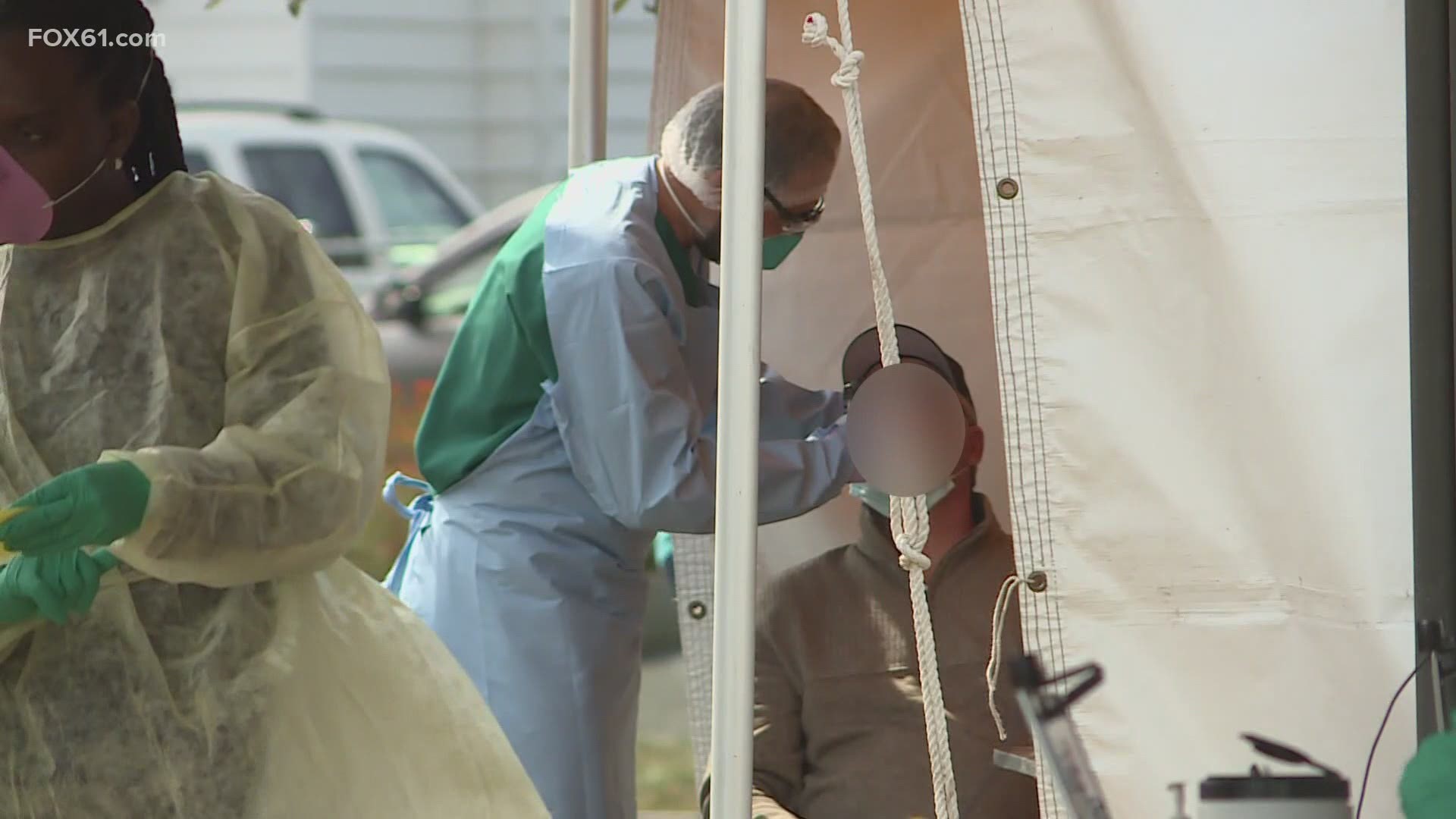NEW HAVEN, Conn. — As COVID cases and hospitalizations mount, New Haven's Mayor is urging residents to have tough conversations with family and friends about respecting pandemic protocols.
Mayor Justin Elicker (D-New Haven) is among those very concerned with the proliferation of COVID-19. He's afraid this second wave could be much worse than in the spring and he says there are a couple of reasons.
"First of all, we’re not in a total lockdown, and in April we were basically pretty much in a total lockdown," Elicker said. "Secondly, we are approaching cold weather and that will increase people's likelihood of being inside and being exposed."
But a Yale Medicine physician says it is not the impression of public health experts that the second wave will potentially hit harder.
"We are certainly worried about this wave that's coming," said Dr. Jaimie Meyer, a Yale Medicine infectious Disease physician. "We anticipate a hard winter, with rising rates of cases. We certainly have a lot of things (businesses) that are open right now. But I think the data right now is really showing that the cases are happening in very specific locations."
And it’s those locations, Dr. Meyer says, where mitigation efforts must be focused. She cites a study in the leading scientific journal Nature that was released today.
"That really showed that only 10% of places are responsible for 85% of infections," she noted.
Those places include restaurants, gyms, and hotels.
Elicker says New Haven is trying very hard to do its part, including by increasing testing capacity.
"In addition to the two community health care centers and Yale-New Haven Hospital, we are working with Semaphore and CHC, which are two additional testing organizations, to expand capacity," he said.
New Haven students have not been in their classrooms since March and Elicker says it's unlikely, they'll return to in-person learning until at least after the holidays.
As for how to approach the holidays, Dr. Meyer says we must assess the amount of risk we are willing to take.
"I think people need to realize this is like a relatively short time sacrifice for potentially really long-term benefit," she said. "If we don’t make changes now, we’re going to pay for it for a long time."
In addition to being diligent of adhering to protocols, she says focus on some positives. She reminds that we need to embrace the great scientific progress, related to Covid, this week.
"With Pfizer’s early data on their vaccine and with new monoclonal antibodies from Eli Lilly getting FDA emergency use authorization," she noted, with a smile.
She said the antibodies already being distributed by the Department of Health and Human Services.
Dr. Meyer, who is also an Associate Professor of Medicine at Yale School of Medicine, says we make choices every day about every facet of our behavior and it’s up to us to decide how we’re going to get through this winter.

